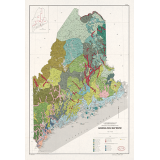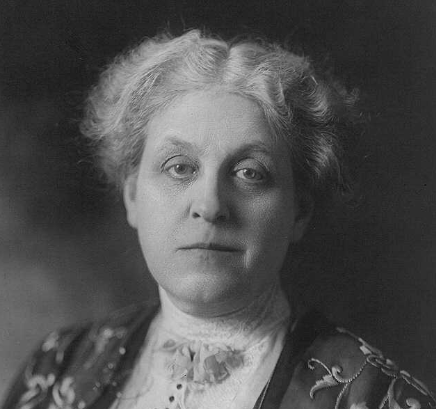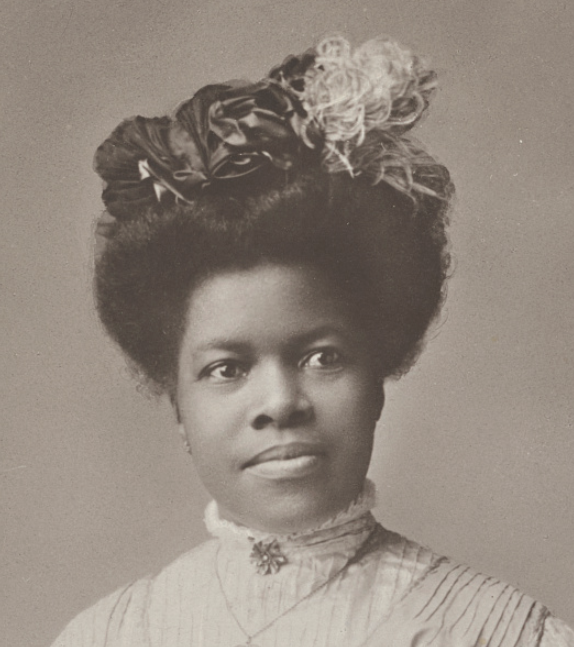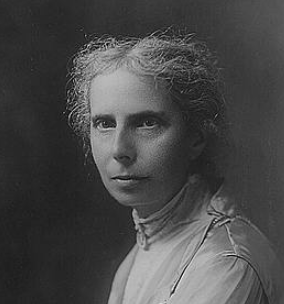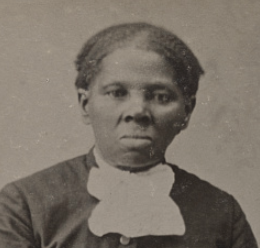As often happens, I ran across a random link (this time via Bluesky) and suddenly found myself investigating subjects as wide ranging as child labor, sardine "cartoners" in Maine, labor unions, the writer Emile Zola, and all the ways they share a story!
What originally caught my eye was an article in French about Douarnenez and Concarneau, fishing villages on the Brittany coast of France, because I have stayed in both places multiple times. It was titled "Les Penn sardin savaient trouver la joie dans la misère" - "The Penn Sardin (the nickname of the women workers in the sardine industry) knew how to find joy in misery."
Little did I know that this year, 2024, the Brittany region is celebrating the 100th anniversary of an infamous strike started by women fish cannery workers protesting their miserable work conditions and pitiful pay. Many of those workers were mere children. Lewis Hine, anyone?
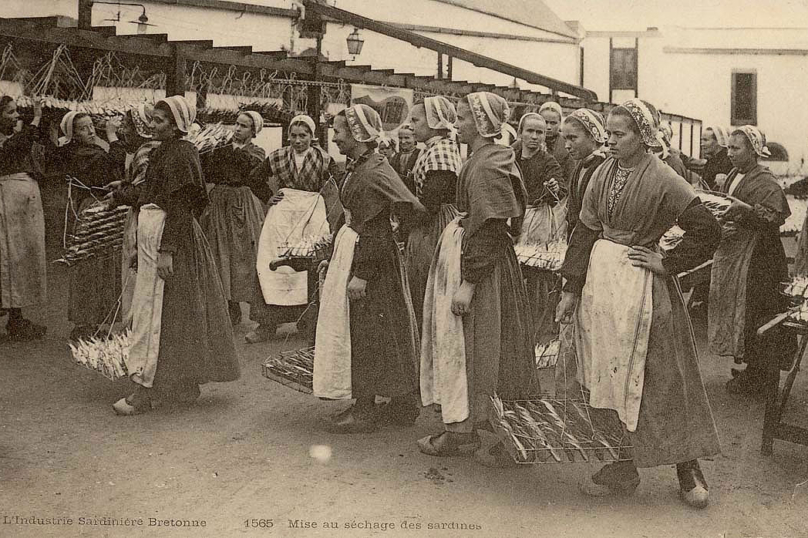
In spite of the cute logo (shown below) of the Béziers sardine factory, female workers detested the owner for his harshness and intractability. In 1924, the women worked for 80 cents a day in freezing and unsafe conditions, called up even in the middle of the night if sardine boats appeared in the harbors with their haul.

Nearly every French person, and certainly every Breton, can sing the song "Penn Sardin" about the strike, which went on from November 21, 1924, until January 6, 1925, when the factory owners gave in to the workers' demands. The 4-minute video linked in this paragraph includes some wonderful primary source photographs. It also shows the song's English translation at the top, and it's quite informative. I hope you'll take a look.
So why am I writing this post in the Celebrating Rural Maine group? Take a look at all these amazing images and newspaper articles of sardine workers (including photos of children taken by Lewis Hine) in...you guessed it...Maine!

How would you use local primary sources to teach about child labor and women in the work force throughout history? What connections would you make to world labor conflicts such as the Penn Sardin strike in northwestern France or elsewhere in the world? How are sardines harvested and "cartoned" today? Is the sardine industry still a part of the Maine economy?
Pre K - 2 3 - 5 6 - 8 9 - 12 Social Studies/History labor workers' rights child labor Lewis Hine
The Maine Department of Education & National Council for History Education are excited to announce a series of professional learning opportunities made possible by a grant from the Library of Congress Teaching with Primary Sources program specifically designed for rural Maine PK-12 teachers to acquire strategies for designing and implementing a community civics and inquiry-based project.
Details are included below:
Part A: Teaching with Primary Sources Online Course (December 2, 2024 - March 31, 2025) - Free, asynchronous, online Teaching with Primary Sources Course to acquire new strategies for analyzing primary sources, incorporating inquiry into your instruction, and accessing primary sources from the Library of Congress and more.
Part B: Saturday Colloquia (March 8, 2025, April 12, 2025, May 17, 2025 from 9am - 2:30pm) - Free, synchronous, online professional learning workshops led by expert historians, education specialists, and spotlight educators related to this year's theme: Geography of the Place We Now Call Maine.
Part C: Onsite Colloquium (Summer of 2025) - Free, onsite (TBD) professional learning opportunity in the summer of 2025. Sessions will focus on developing a community civics & place-based inquiry project with students. 15 teachers will be selected and receive up to $750 for project funding.
A flyer is attached with additional information. Sign up today to reserve your spot in 1 or all 3 parts. Stipends available for participation.
Art/Music English/Language Arts Mathematics Science Social Studies/History rural Maine
Since the MCSS Conference coincides with the eclipse, I thought we could do a scavenger hunt of related primary sources. You can use the Library of Congress site, Maine Memory Net, or another source.
Ways to play are:
- Find a primary source about a solar eclipse
- Find a primary source of an area in the path of totality & post here
- Path of totality: https://www.maine.gov/doe/learning/II/eclipse2024
- Find another source that relates to your primary source for a deeper dive
- Share a teaching strategy or lesson plan to help others
 Snow in the mountains of Bernalillo County, New Mexico. The unusual crescent shape patches of light in the shadows were caused by the partial eclipse of the sun (1940).
Snow in the mountains of Bernalillo County, New Mexico. The unusual crescent shape patches of light in the shadows were caused by the partial eclipse of the sun (1940).
I just read with interest an AP news report on discussions in Maine about updating standards to include teaching about the misapplication of science in middle school science. According to the AP:
- The proposal states that science education in the state should reflect that “misinterpretation of fossil observations has led to the false idea of human hierarchies and racial inequality.” The proposal also states that “historically, some people have misused and/or applied the ideas of natural selection and artificial selection to justify genocide of various groups, such as Albinos in Africa or Jews [and, I would add, people with disability] in Europe.”
This reminded me of a Maine Public Radio 90-second long piece from November, with a quote by an archaeologist professor emeritus of environmental science and policy at the University of Southern Maine about the addition of Malaga Island, which was once home to a mixed-race fishing community, to the National Register of Historic Places. According to the print version of the piece (with link to audio):
- "Located off the coast of Phippsburg in Casco Bay, Malaga Island was first settled by several Black families in the 1860s. Additional Black, white and mixed-race families would build homes on the 42-acre island in the following decades.
- "But the state forcibly removed Malaga's residents in 1912 in a decision tied to racial prejudice, the eugenics movement and social tensions with wealthier coastal residents who disapproved of their poorer neighbors across the water."
I have been looking for Library of Congress resources specifically addressing pseudo-science, Eugenics, purity contests at state fairs, and the like in Maine, so far without success. Perhaps others with more knowledge can add links to primary sources to make this a richer discussion.

- New York : Published by Currier & Ives, c1879. www.loc.gov/item/2001699166/
I was struck by the notice (below) about a Maine teacher who builds a class around fly-fishing. What primary sources, local and national, would you share with his students?
|
|

https://www.loc.gov/item/2017882474/
I thought the Maine TPS group might enjoy the discussion of the USDA Pomological Watercolors Collection Online started last month by  Keith Patterson
. In the comments,
Keith Patterson
. In the comments, 
This led me in two directions: if American Pomological Societies are inclusive of all fruits, why is Maine's dedicated only to apples? In the original post's USDA collection, I found many blueberries (a sample is below), and thought of TPS member  Marie Emerson
, who would know which are MAINE blueberries, and whether any other than lowbush can claim that title.
Marie Emerson
, who would know which are MAINE blueberries, and whether any other than lowbush can claim that title.
I also wondered why "hows about them apples" was in my head at all as I named this post. A quick search told me that that question has been asked a lot, that it is a 2005 entry in the Urban Dictionary, a phrase in the 1997 film Good Will Hunting, and has a dubiously undocumented assertion in Wikipedia that it dates to World War I bombing. No apparent Maine connection at all. Though the spirit feels a tad recognizable.
- Urban Dictionary: them apples is used in the term, "how do ya' like them apples?" basically meaning, "what do you think about that?" it is a phrase that intends to [irritate] people [].
Vaccinium corymbosum: Stanley
Fall is quickly fading. Before it ends, let's share some of its beauty! Find a primary source that captures Maine in the fall and share below.

Saying goodbye to summer is always bittersweet for me. I love the summer, but fall in Maine is amazing! That line from You've Got Mail about the smell of freshly sharpened pencils comes to mind. :) I thought it would be fun to have a primary source challenge. Post something that reminds you of summer fun!
Here's a blast from the past. The Cheese House in Trenton. At the end of summer, we always braved one last trip to Acadia and passed the Cheese House. I don't remember actually going in, but I remember it being the landmark to look for. Over the years, that circle building has been many things but I still call it the Cheese House.
What is something that reminds you of summer?
Challenge
Find a primary source and share it here.
Bonus: Share our group! Let's grow TPS Maine!
With a little nudge from  Alison Noyes
(Thank you, Alison!), I'd like to share a post from
Alison Noyes
(Thank you, Alison!), I'd like to share a post from  Michael Berson
in the KidCitizen group titled Child Labor 2023. In that post, Michael references the latest disturbing data about child labor in Maine.
Michael Berson
in the KidCitizen group titled Child Labor 2023. In that post, Michael references the latest disturbing data about child labor in Maine.
TPS Teachers Network users regularly post about and create albums of the photographs of activist/photographer Lewis Hine, and fortunately for Maine educators, Hine took a lot of photos of child labor in Maine.
Here's a tip for finding those Maine photos:
- Navigate to the National Child Labor Committee Collection.
- Click on the link for Collection Items.
- Look for the "facets" on the left. Expand to More Locations.
- Click on Maine to see all 72 items in the collection from Maine!
And now you're ready to create your own album of Child Labor photos from Maine! For more on creating albums, visit the ALBUMS section of the Help Center.

5 year old Preston, a young cartoner in a Maine Canning Co. I saw him at work different times during the day - at 7 a.m., in the afternoon and at 6 p.m., and he kept at it very faithfully for so young a worker. Location: Eastport, Maine.
Welcome to the group everyone! This event looks interesting. This is during the school day, but I thought I would share just in case. It's on my calendar to attend. So if you want a recap, let me know. I'm not sure if it is going to be recorded.
Community-driven Archives Online Discussion Event
Hosted by the American Folklife Center
The discussion event, Community-driven Archives: Local Needs/Global Practices in Safeguarding Living Cultural Heritage, will be held online on Friday, September 8th, 2023 from 10:30am – 2:30pm Eastern Time (GMT-4).
Testimonials
- I love that there is new info on the site daily!
- I had a wonderful time working with the Library of Congress and learning about all of the resources at my fingertips!
- The TPS Teachers Network has an equal exchange of ideas. You know it's not a place where you're being judged.
- My colleagues post incredibly fine resources and ideas....the caliber of the suggestions and resources make me feel that I take a lot from it. It's a takeaway. And I hope that I can give back as much as I get.
- Going into this school year, I have a fantastic new resource for my own instruction and to share with my colleagues!
- I am very glad that I discovered the TPS Teachers Network through RQI. Great resources can be hard to find out there on the internet!

